On Air Now
X-Posure with John Kennedy 11pm - 2am
8 May 2024, 19:26
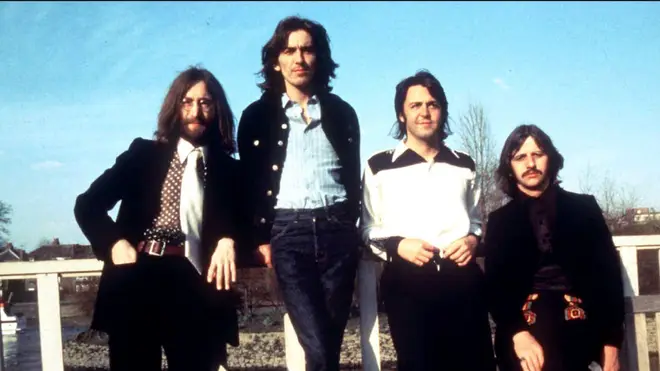
Sir Paul McCartney insisted that he didn't break up the Fab Four - it was John Lennon. However, as Radio X reveals, all four members had reason to walk out on the greatest band of all time...
“I didn’t instigate the split. John walked into a room one day and said I am leaving The Beatles. Is that instigating the split, or not?”
For half a century, Paul McCartney was the man who "split The Beatles". When he announced the release of his first, self-titled solo album in April 1970, the world was shocked to hear that the Fab Four were no more. But, he maintains to this day, he was not the one who quit - it was John Lennon.
History still painted McCartney as the bad guy. He told the BBC in October 2021: "I had to live with that because that was what people saw. All I could do is say, ‘no’.”
Peter Jackson's documentary Get Back tells the story of The Beatles trying to rehearse for a live TV show that was meant to take place in the January of 1969 - with frustrating results. The TV show never happened, the "Get Back" sessions remained on the shelf for over a year... and the division within The Beatles grew and grew.
So why did Paul McCartney get the blame for splitting up the biggest band of all time? And why is he still keen on setting the record straight 50 years later?
Radio X looks at all the different theories behind why The Beatles broke up...
The seeds of the Beatles split were sown the minute they stopped being a performing band in August 1966. While this signalled the peak of their musical career in Sgt Pepper, it meant that they weren't in each other's pockets as much as the Beatlemania years and consequently all four developed other interests - and forged new and lasting relationships outside the group.
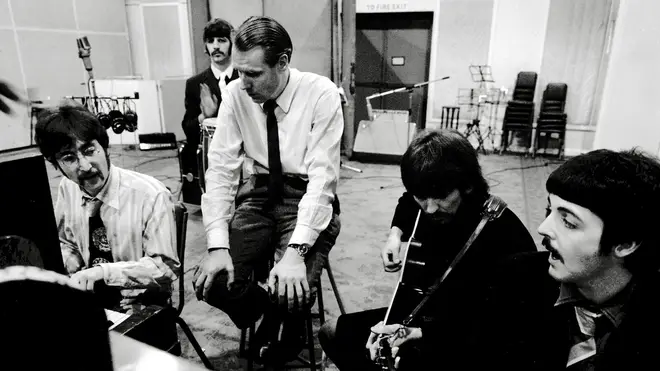
The most famous of these relationships was between John Lennon and the Japanese artist Yoko Ono, who had got together in May 1968. The introduction of "a Yoko" into a band dynamic has become a rock cliche - and it's always been the prime piece of evidence when it came to why the Beatles split up.
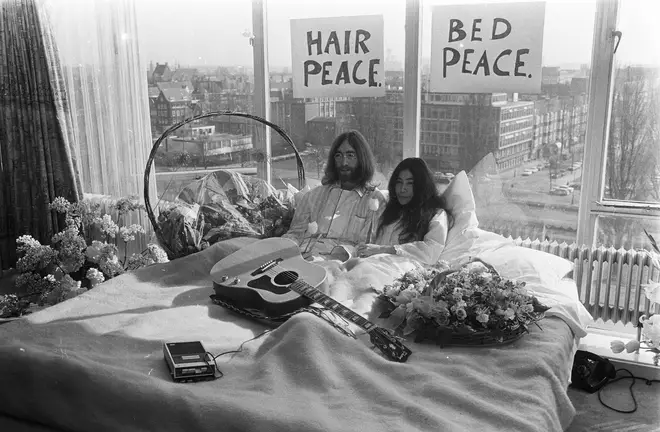
The trauma endured by John and Yoko in late 1968 and early 1969 (drug addiction, a miscarriage and the horribly racist attitudes of the British towards Ono) made their bond tighter, but as Peter Jackson's film shows, the other Beatles weren't surprised by this turn of events.
"They‘re going overboard about it,“ Paul McCartney says at one point during sessions in January 1969. “But John always does. It's going to be such an incredible, comical thing, like in 50 years‘ time, for people to say, ‘They broke up ‘cos Yoko sat on an amp’.“ So, even during the actual events, the four members themselves felt that there was more to the split than Yoko turning up.
The drummer was so fed up of his position within The Beatles during the recording of the "White Album" in August 1968 that he walked out of Abbey Road for two weeks. "I felt I wasn’t playing great," Ringo recalled in the Anthology documentary, "and I also felt that the other three were really happy and I was an outsider. There was no magic and the relationships were terrible." Starr returned, however, and the sessions resumed.
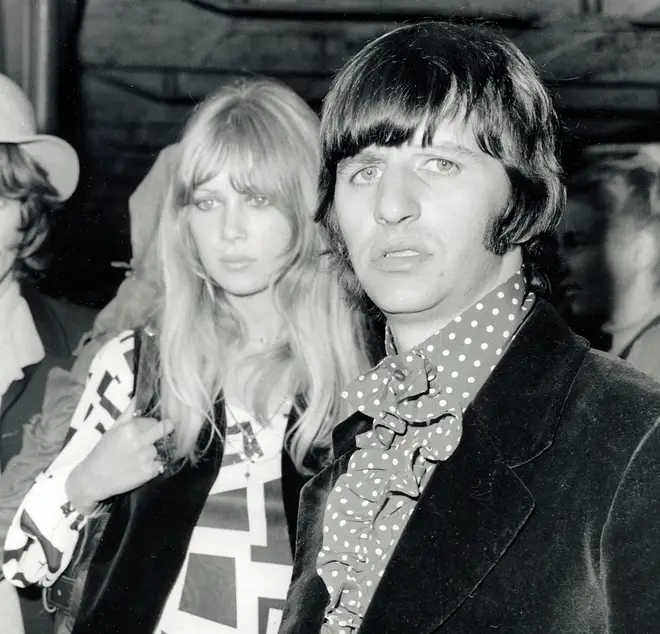
The "Get Back" sessions of January 1969 were especially draining for George Harrison. Once the sessions for the "White Album" had wrapped up the previous October, the guitarist had visited Bob Dylan and The Band in Woodstock and was impressed by their collaborative, communal approach to making music. Once back in London with John and Paul, he found his own songs were being overlooked in favour of half-finished ideas submitted by the songwriting duo.
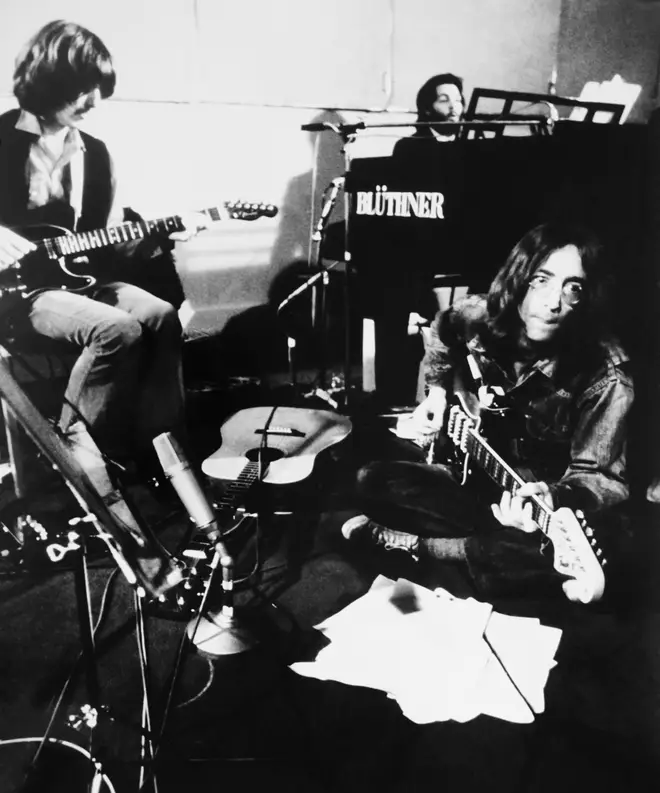
This was particularly frustrating as a number of George's songs were infinitely better than anything the others were coming up with - including Something. Things came to a head on 10th January 1969, when after an argument during the lunch break, George told the others that he was leaving The Beatles. Despite some barbed comments that they'd replace him with Eric Clapton, the other Beatles invited George to a summit meeting and it was agreed that Harrison would return as long as they'd cancel the live concert idea and make an album instead.
The four Beatles reconvened to record another album in the Spring and Summer of 1969 - this became Abbey Road. With the record completed, Lennon, McCartney and Harrison met on 9th September to discuss future plans and a recording was made so the absent Starr could follow proceedings. On the tape, Lennon proposes that they record another album, giving Harrison more songs and for Paul to leave off some of his - shall we say - more "commercial" tracks like Maxwell's Silver Hammer. As McCartney puts it during this meeting: "When we get in a studio, even on the worst day, I’m still playing bass, Ringo’s still drumming, and we’re still there, you know.”
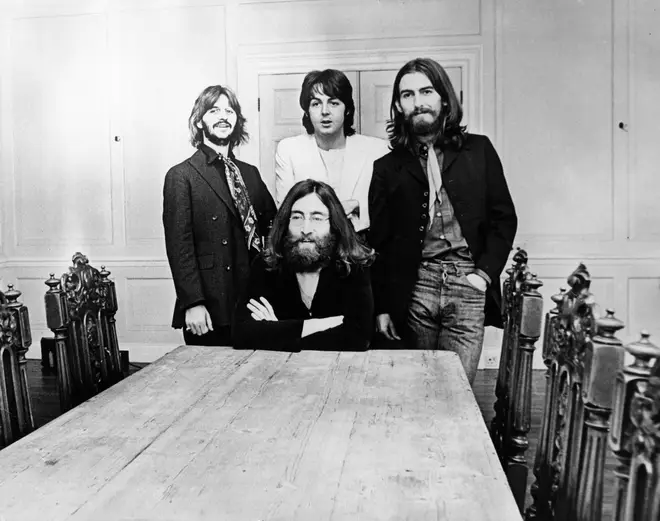
However, later that same week, Lennon and Ono flew to Canada to take part in the "Toronto Rock & Roll Festival" with a band that included Eric Clapton and showcased John's recent solo work. That weekend, he decided the leave The Beatles permanently and on 20th September at another business meeting to sign a new contract with their label EMI, Lennon said "I want a divorce".
McCartney remembered in Anthology: "[John said] 'I wasn’t gonna tell you 'til after we’d signed the contract, but I’m leaving the group’. Our jaws dropped and we signed the new deal in a daze.”
In August 1967, The Beatles' manager of five years, Brian Epstein, died unexpectedly, leaving his business affairs in a rather messy state. Around the same time, the group had founded their own Apple Corps company to deal with their own business, but after a year of overspending, Apple was to employ a new manager to sort out their finances.
McCartney had proposed his father in law's company take charge, but Lennon, Harrison and Starr instead signed a three-year management contract with notorious US music business accountant Allen Klein. Because the group were re-negotiating their record deal using Klein's management skills, it was decided not to announce the bombshell that Lennon had quit.
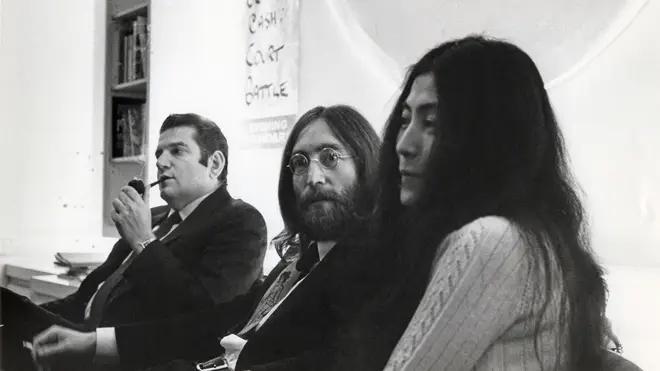
While Klein's business savvy gave the Fab Four more money from their recordings than they'd ever seen, there were still issues. When Northern Songs, the company who published Lennon and McCartney's music, came up for sale, a botched bid meant they missed the chance for John and Paul to own their work (it was this error that led to Michael Jackson getting hold of the catalogue in the 1980s). But there was worse to come - while three of the Beatles backed Klein, Paul still didn't want him handling his side of the partnership, and this is where the arguments really started.
With Lennon now doing his own thing with his own project The Plastic Ono Band, McCartney was secretly recording his debut solo album under the pseudonym “Billy Martin”. Meanwhile, John had enlisted producer Phil Spector to do something with the "Get Back" tapes from the previous year - the resulting album offended McCartney by taking his songs and adding what he claimed was a lot of unnecessary orchestration.
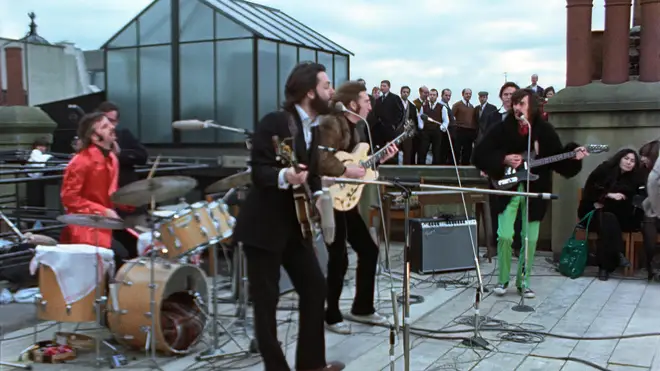
With the album and film - now titled Let It Be - completed, it was added to the Apple Records schedule, but McCartney thought his solo album should take precedence. The others disagreed. After a huge argument, John, George and Ringo backed down and McCartney (the album) was finally released on 17th April 1970 - but the damage had already been done.
Rather than conduct interviews for his album, McCartney composed a Q&A press release. “Do you foresee a time when Lennon/McCartney becomes an active songwriting partnership again?” asked one question. Paul replied: “No.”
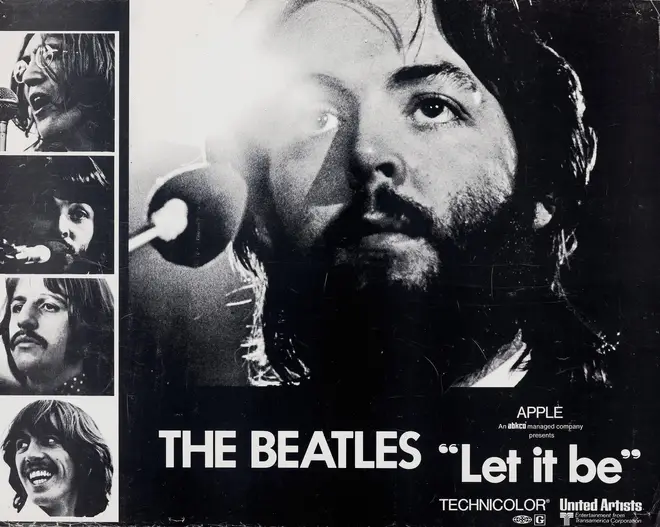
The Daily Mirror broke the news on the morning of 10 April: “PAUL QUITS THE BEATLES”. Lennon was riled because he'd wanted to announce the band had split over six months earlier.
He had his revenge at the end of the year when he gave a lengthy interview to Rolling Stone magazine, which tore down all the Beatles myths: “You had to be a bastard to make it and The Beatles were the biggest bastards on the earth," he snarled. He also ripped into his bandmates’ attitude towards Yoko: “They all sat there like a f**king jury and judged us… I’ll never forgive them”.
McCartney tried to avoid any public slanging matches, but still wrote to the letters page of the Melody Maker to say: "In order to put out of its misery the limping dog of a news story which has been dragging itself across your pages for the past year, my answer to the question 'Will The Beatles get together again?' …is no.”
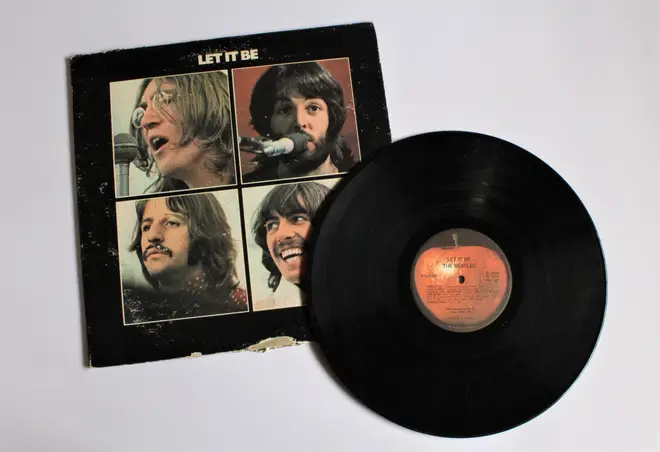
The Beatles’ contract with Allen Klein meant that all earnings made from each member’s solo works were to go into the Apple "pot". In August 1970, McCartney began steps to dissolve the Beatles’ partnership, arguing his financial and artistic freedom was infringed.
However, the only way to end the deadlock was to take legal action against the other three Beatles So, on 31st December 1970, McCartney filed a lawsuit in the London High Court against Lennon, Harrison, Starr and Apple Corps, demanding the dissolution of The Beatles & Co.
The legal case ground on into the 1970s, when the court found in favour of McCartney, leaving The Beatles as a legal entity to finally come to an end on 29 December 1974.
From that day on, John Lennon, Paul McCartney, George Harrison and Ringo Starr were now considered four individual musicians, and the band that changed the face of rock music was officially dead.